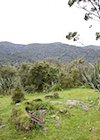 The select committee established to review the Emissions Trading Scheme (ETS) is now accepting submissions, and controversy over the precise interpretation of the terms of reference is already looming. As I noted last year, the terms were drafted by ACT and adopted wholesale by the government, with the exception of the removal of a review of the science of climate change. That was replaced by this clause:
The select committee established to review the Emissions Trading Scheme (ETS) is now accepting submissions, and controversy over the precise interpretation of the terms of reference is already looming. As I noted last year, the terms were drafted by ACT and adopted wholesale by the government, with the exception of the removal of a review of the science of climate change. That was replaced by this clause:
• identify the central/benchmark projections which are being used as the motivation for international agreements to combat climate change; and consider the uncertainties and risks surrounding these projections
The Standard considers that this opens the door to Rodney Hide and his mates in the ranks of the cranks, while David Farrar at Kiwiblog leaps to its defence:
So when you hear people rail against the considering the uncertainties and risks of projections, they are actually railing against people understanding the science, and reading the IPCC reports.
No, David, they are railing against the use of that clause to introduce a review of the underlying science — which is what Hide is adamant he’s going to do, and committee chairman Peter Dunne is equally certain he’ll veto. However, the precise wording of that section is so vague that it is capable of multiple interpretations. Time to pull it to pieces…


 As one would expect from a rurally based sector, foresters are a conservative lot. I don’t say that disrespectfully, because societies – for the sake of stability – need a balanced mixture of change-makers and change-resisters. But it did mean that, when in 1989 I started work on Climate Change and forestry, I met with considerable opposition: “what bullshit is this? The climate has ALWAYS changed. Nature is self-balancing.” And so on, you’ve heard it all before.
As one would expect from a rurally based sector, foresters are a conservative lot. I don’t say that disrespectfully, because societies – for the sake of stability – need a balanced mixture of change-makers and change-resisters. But it did mean that, when in 1989 I started work on Climate Change and forestry, I met with considerable opposition: “what bullshit is this? The climate has ALWAYS changed. Nature is self-balancing.” And so on, you’ve heard it all before. No surprise: the NZ climate crank coalition has rushed to support the ACT/National review of climate policy. Rear-admiral Jack Welch issued a
No surprise: the NZ climate crank coalition has rushed to support the ACT/National review of climate policy. Rear-admiral Jack Welch issued a